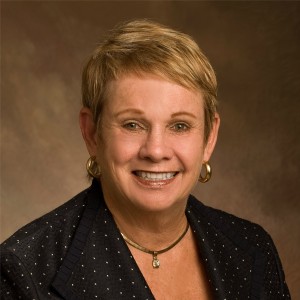 As New York families gather over Thanksgiving turkeys, and count their blessings and good fortune, they should include in their circle of gratitude three well-known New York judges.
As New York families gather over Thanksgiving turkeys, and count their blessings and good fortune, they should include in their circle of gratitude three well-known New York judges.
These judges have taken a firm position, and offered their help, to raise the age of criminal responsibility, thus keeping thousands of 16 and 17 year old misdemeanants in juvenile court with appropriate services for youth.
Chief Judge Jonathan Lippman, former Chief Judge Judith Kaye, and former criminal court judge Michael Corriero deserve that thanks.
After all, last month we survived another Halloween night – you know, when adults act like kids and kids dress like adults. Just the thought of that should remind everyone how artificial and arbitrary the distinction between adult and child can be.
Think back to a Halloween night in your youth, and what you and I might have done when we were 16 or 17; joyriding, tipping over a mailbox or two, frightening little trick-or-treaters, or begging for an alcoholic drink, rather than a treat. Not a lot of pause for caution or thoughtfulness; just pure teenage fun magnified by the license of the holiday.
Currently, only New York and North Carolina close the juvenile courts to 16 and 17-year-olds, handling their cases instead in adult court. This practice is contrary to the rehabilitation goal of juvenile justice, it flies in the face of modern brain science proving that brain development continues into the early 20s, and it creates a ready stream of inmates who recidivate and overcrowd our prisons.
As a juvenile judge in Clearwater, Fla., for nine years, I became increasingly alarmed at the number of youth being direct filed to adult court; to have that happen automatically at ages 16 and 17 in New York and North Carolina for all crimes a youth commits is beyond my comprehension. But help is on the way, at least in one state.
In New York, the stars are aligned this autumn to create legislation to extend the jurisdiction of juvenile and family court to include 16 and 17-year-olds arrested for less serious, non-violent crimes.
Leading the effort is former New York criminal court Judge Michael A. Corriero, now executive director of the New York Center for Juvenile Justice. The center’s mission, “Judging Children as Children,” has served as Judge Corriero’s mantra since he presided over the youthful offender path of the criminal courts. He is passionate about offering rehabilitation to juvenile defendants, seeking alternatives to incarceration and exploring restorative justice.
Last month, Judge Jonathan Lippman, Chief Judge of the State of New York, announced a major juvenile justice initiative. He chose Judge Corriero and the Center to advise the New York State Permanent Sentencing Commission on proposed legislation impacting 16 and 17-year-olds coming into contact with the adult court system. In selecting Judge Corriero as an advisor to the commission, Chief Judge Lippman wisely chose one of the country’s best advocates for treating at-risk kids holistically and keeping young offenders out of the adult correctional system.
Chief Judge Lippman urged the commission to “work through all the complex issues on a fast-track basis and draft legislation in time for the upcoming legislative session.” He expressed hope that, “by working together with our partners in government and reaching out to the many affected constituencies we will produce the blueprint for a more modern and more effective juvenile justice system in New York.”
Last month, the Citizens’ Committee for Children of New York (CCC) presented Judge Corriero with its Eleanor Roosevelt Award. In accepting the award, Judge Corriero stated:
“…In 1945 when the Citizens’ Committee for Children was founded by Eleanor Roosevelt and several prominent New Yorkers who cared about New York City’s children and their welfare, I was one of those children. I was just three years old living in a tenement in Little Italy -- my father did the work of a longshoreman and my mother was a seamstress on lower Broadway. Neither of them was formerly educated. Yet in one generation we went from that poor tenement household to a judge. That’s the American dream. That’s what animates me. That’s what Citizens’ Committee for Children stands for. That’s why I’m so proud to have accepted this award -- it will continue to inspire me and its going to be the sword I use to cut down opposition to fair and reasonable justice. We are going to, together, transform juvenile justice in New York.”
A well-loved and respected cheerleader for Chief Judge Lippman’s juvenile justice initiative is former Chief Judge Judith Kaye, now with the Skadden, Arps law firm in New York City. Judge Kaye wrote to me: “I’m so glad this important initiative is getting your very special attention. As you know best, these adolescent years are particularly vulnerable. We have mountains of data—brain science as well as court records -- substantiating that. How terrific it is that we are at long last attempting to put what experiences teaches us to good use—to take the opportunity for a positive intervention instead of a welcome to a life of crime.”
Judges Lippman, Corriero and Kaye. What powerful support in New York for this juvenile justice initiative. North Carolina, take note!
Note: Quotations from Chief Judge Lippman and Judge Corriero were taken from the New York Center for Juvenile Justice’s website.

Truly a reason to give thanks for all your dedication and hard work on the reform of juvenile justice in New York and across our nation. My prayers are for all youth to be treated as such. Youth not adults.